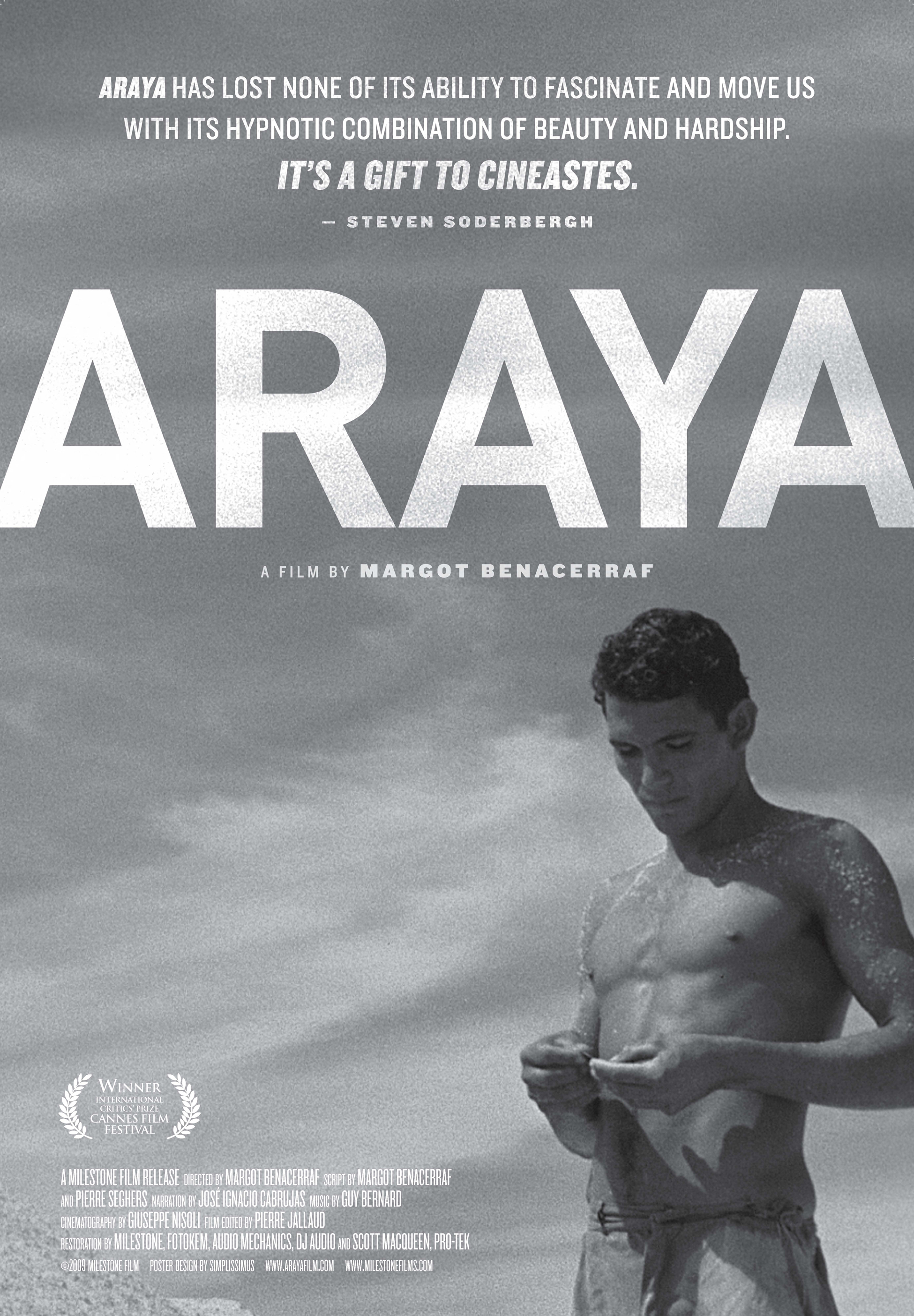
Araya, the film, is billed as high art and high cinema.
It has much been reviewed to critical acclaim
in this regard. The film maker, Margot Benacerraf, in addition to thinking of this film as a ‘tone poem,’ also
intended the film to be commentary on the loss of traditional culture due to
modernization. She glorifies the stark
and impoverished lives of the salt miners and their families. The people she
dehumanizes as gestural art worked relentlessly, from childhood to old age, and
for many hours every day. For this
continual labor, they secured a marginal and bare existence, so that she and we
could salt our food at extremely little cost or effort. This is the privilege that is unmentioned yet
front and center in the film. This is
the same privilege that ultimately took apart the traditions that Benacerraf
found so quaint and artfully dear—not for the good of the people involved—but rather
to reduce the cost of producing salt even further.
While this film was produced in 1959, unfortunately, the
lives of abject poverty depicted—where labor starts in childhood—are still
common in many salt producing parts of the world. However, we have a choice. We can support ethically produced and Certified
Fair Trade salt, and if we do the idea of fairness will spread. In fact, when purchasing imported foods or
other items, you are probably supporting corporations that degrade and devalue
human life if you don’t insist on Fair Trade.
Salt, as it turns out, is still one of the worst offenders when it comes
to child labor and other labor abuses. And of course, these abuses are not art. Other particularly egregious abuses in
today’s world concern coffee and chocolate production.
For more information please see our posts on --
Corporate Salt: http://boycott4peace.blogspot.com/2015/02/salt-justice.html
Corporate Chocolate: http://boycott4peace.blogspot.com/2015/01/boycott-nesquik.html
Corporate Coffee: http://boycott4peace.blogspot.com/2014/11/boycott-starbucks.html
Meanwhile, educate yourself and your friends. The film, Araya, is available through
college, public, and school libraries as well as other video outlets, on
request. And while this isn’t our
favorite film, it does help us all confront our privilege.
Check out our post on ‘Peace Making and the Power ofNarrative.’ It starts out with a short
essay on privilege that we think is very worth reading.
~~~
Our recommended DVDs can be found here:
~~~
Participate! If you know of other media that helps us
confront and understand our privilege, whether they are articles, books, CDs,
DVD’s, periodicals, or websites--please share in comments. We may be able to feature your
recommendations in an up-coming blog post!
~~~
Boycott for Peace!
https://www.facebook.com/boycott4peace
http://www.pinterest.com/boycott4peace/pins/
~~~
E-mail, reblog, tweet, share, or pin, using the buttons below:
http://www.pinterest.com/boycott4peace/pins/
~~~
E-mail, reblog, tweet, share, or pin, using the buttons below:
No comments:
Post a Comment